The effects of synthetic marijuana are as varied as the substances that make up this broad category of drugs. Makers of synthetic marijuana products attempt to create something that is legal and that also mimics the active compounds in cannabis. Of course, most of these manufacturers are more interested in profits than safety and the ill effects of using them are multiple. Popular with young people, these products have finally come to the attention of lawmakers who have attempted to put a stop to their sale. Drug makers always find a way around the laws, however, so it is important for parents and other adults to be aware of synthetic marijuana and how harmful it can be.
What Is Synthetic Marijuana?
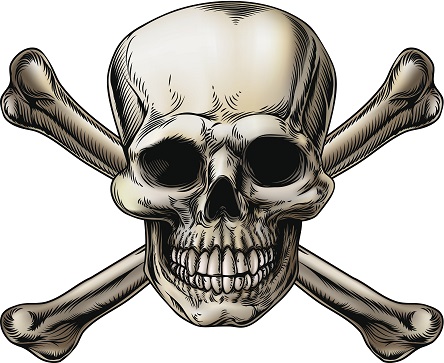 Fortunately for public health, most of these products have been outlawed, but they have not gone away. Marijuana comes from a plant called cannabis. It contains thousands of natural compounds, some of which have mind-altering abilities. It is for these compounds, called cannabinoids, that people smoke marijuana. They give the user a pleasant, sleepy, relaxed feeling. As a mind-altering, psychoactive product, marijuana is illegal in most places.
Fortunately for public health, most of these products have been outlawed, but they have not gone away. Marijuana comes from a plant called cannabis. It contains thousands of natural compounds, some of which have mind-altering abilities. It is for these compounds, called cannabinoids, that people smoke marijuana. They give the user a pleasant, sleepy, relaxed feeling. As a mind-altering, psychoactive product, marijuana is illegal in most places.
In an attempt to profit from the demand for marijuana, manufacturers have developed products that contain synthetic versions of the natural cannabinoids. They spray the formula onto some type of dried plant and sell it as incense, potpourri or even cleaners. These products are labeled in a way that makes it seem as if it is not a drug to be smoked. Of course, the intention is exactly that. Young people are enticed to buy it and smoke it, and then they suffer the synthetic marijuana side effects.
How Is Synthetic Marijuana Dangerous?
Real marijuana poses health risks, but the synthetic versions can be even more harmful. The main problem is that you can never be sure what is in the product. Marijuana is a natural product that is dried to be smoked. Synthetic versions may contain a whole host of compounds that the makers do not reveal. Some of the synthetic marijuana health effects that have been seen in users include anxiety, paranoia, shaking, emotional instability, hallucinations, panic attacks, dizziness, hot flashes and convulsions.
After too many teens and young adults were harmed from using synthetic marijuana products, lawmakers took action to ban the substances used to make them. Unfortunately, there are almost infinite possibilities when it comes to making synthetic variations of cannabinoids. When one substance is banned, drug manufacturers simply come up with another one. In most states, you can no longer buy the products that were disguised as potpourri or herbal smoking blends, but that does not mean synthetic marijuana has disappeared. Some people are still using it and are experiencing the ill effects. Be aware of this lab-produced drug and make sure that your children understand its risks.
Learn More About Synthetic Drugs And Their Dangers!
There is something about the name “synthetic marijuana” that sounds safe. If traditional marijuana is potentially dangerous with risk for abuse, not to mention illegal, certainly the synthetic should be the healthy or at least harmless alternative, right? Not so fast. Read on to educate yourself about synthetic marijuana side effects and dangers.
What Is Synthetic Marijuana?
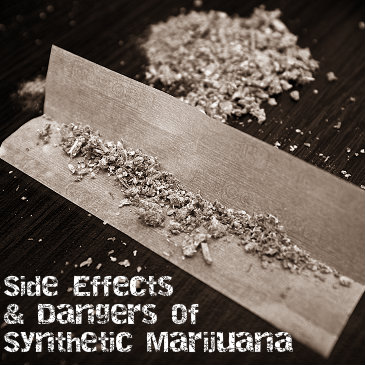 Synthetic marijuana is one substance from a family of what are known as “designer drugs.” Instead of marijuana in its natural plant form, this is a lab-created product intended to reproduce the high associated with marijuana. By creating a synthetic form of marijuana, producers, dealers and users believed they had landed on a product that would escape government sanction as well as urinalysis.
Synthetic marijuana is one substance from a family of what are known as “designer drugs.” Instead of marijuana in its natural plant form, this is a lab-created product intended to reproduce the high associated with marijuana. By creating a synthetic form of marijuana, producers, dealers and users believed they had landed on a product that would escape government sanction as well as urinalysis.
Known as K2 and spice, synthetic marijuana contains natural herbs that have been sprayed with a cannabinoid substance. While the pot-like high that the drug produces is due to the effect on the body of the same kinds of chemicals found in natural THC, it is not the same. And it is certainly not safer.
Side Effects And Dangers Of Synthetic Marijuana
The effects of synthetic marijuana will, to some degree, mimic traditional marijuana, but with some unique and often unintended consequences. For reasons not completely understood, the effect of smoking marijuana in its natural leaf form is distinct from smoking herbs sprayed with the chemicals contained within marijuana. This has led producers, users and scientists to conclude that there is more to the high and effect of traditional marijuana than the cannibinoids present in THC.
There are several synthetic marijuana dangers that users and potential users are often unaware of. Many individuals will use the drug expecting the results they are accustomed to with traditional marijuana. But with synthetic marijuana, the high is often more potent and completely unpredictable.
The side effects and dangers of synthetic marijuana that many do not anticipate, and that are rarely associated with the use of traditional marijuana, may include:
- various forms of psychosis
- hypertension
- seizures
- convulsions
- heart attack
- stroke
- blindness
- death
even in users who are young and in otherwise good health.
Synthetic weed also carries risk because of the mystery that surrounds its composition. The blend is not proprietary and each blend that a user obtains may contain any mix of unknown chemicals in unknown quantities, producing vastly different results from one high to the next. It is also especially difficult for medical professionals to treat overdoses and adverse effects given that the chemicals contained within the mixture the patient has taken may be unknown and unpredictable.
Synthetic marijuana is not a safe product and its use carries great risk. If you or someone you know struggles with addiction to synthetic marijuana or you are concerned about your use, do not delay in seeking help. Synthetic marijuana is not a harmless, legal substitute for an illegal drug; it carries dangers and side effects that may be far more severe than the drug it was designed to mimic. Withdrawal symptoms can also be powerful and unanticipated and for this reason it is recommended that users and addicts seek the care and supervision of a medical professional and/or a drug rehabilitation treatment program to safely get off and stay off synthetic marijuana.
Find Out How Synthetic Marijuana Use Is Rising Among Troops
Your child is struggling with addiction. You have always been his caregiver. As a parent, you have taken care of him, helped him when he was down, kept him safe and took action when needed. Now that he is facing this very personal battle, you may feel helpless. How can you possibly take care of his needs when he is being ravaged by this disease? As a parent, the feeling of helplessness that accompanies the addiction of a child can be overwhelming and leave you with a sense of despair. You can’t fix the problem, but you can be there for your child and lend your support.
Why Can’t I Fix His Addiction?
You cannot fix your child’s addiction or cure him of it because addiction is a chronic disease with no hard and fast cure. You would never blame yourself for not being able to cure your child’s asthma or diabetes because you are not a doctor. You are not an addiction expert, a therapist or a doctor and you cannot treat or cure his disease. The sooner you are able to accept this fact, the better you will feel. That sense of helplessness will begin to lessen when you accept that your child has a disease that will require treatment by experts.
Can I Help My Child Overcome Addiction?
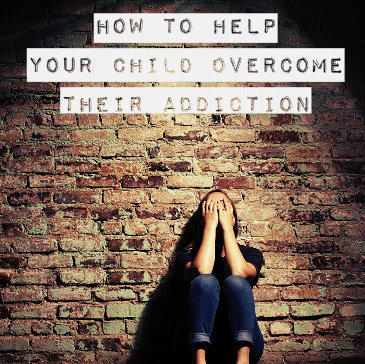 You do have the ability to help your addicted child. Once you accept that you cannot fix the problem, you can take steps to help him. Doing so will help to relieve those helpless feelings threatening to overwhelm you. In fact, taking action of some kind will keep you from falling into hopeless despair, which often leads to lethargy and inaction. Your child does need you now, so take steps to do what you can to help:
You do have the ability to help your addicted child. Once you accept that you cannot fix the problem, you can take steps to help him. Doing so will help to relieve those helpless feelings threatening to overwhelm you. In fact, taking action of some kind will keep you from falling into hopeless despair, which often leads to lethargy and inaction. Your child does need you now, so take steps to do what you can to help:
- Educate yourself – You have been blindsided by this problem and you probably have little experience with addiction. To better understand what your child is going through and what he needs from you, educate yourself about the disease of addiction. It will help you to have patience with him and to learn how to better support and assist him.
- Investigate treatment options – Unless your child is still a minor, you cannot force him to get professional help. You can, however, present him with options for treatment. Talk to your doctor about resources for addiction care and collect information about your options. Visit therapists and rehab facilities to get an idea of what is available and so that you can give your child the best choices when he is ready for help.
- Consider family therapy – Addiction is a disease that affects the entire family. Once your child has decided to get help, you can be an active participant. Engage in group therapy sessions with your child and other members of the family. He will find motivation in seeing that you and his loved ones are committed to his treatment.
- Build support – Your child is going through a difficult struggle, but so are you. You cannot give all your attention to him and forget about your own needs. Make sure you have built up support for yourself. Consider joining a support group for the loved ones of addicts. Also make sure that you have friends or family with whom you can talk when you feel overwhelmed and stressed. Support is necessary for addicts, but it is important for you too.
It is only natural to feel helpless when you cannot fix your child’s problem. You can guide him through it, though, and you can support him. When he is ready for help, be there for him and you will be doing the best you can.
If You Or Someone You Love Is Struggling With Drug Or Alcohol Abuse, You’ve Come To The Right Place – Help Is Just A Phone Call Away!
31 Jul 2014
The Downside Of Legalizing Marijuana
When examining the issue of marijuana legalization, pros and cons fill up both sides of the balance sheet. But while there may be some benefits to legalization, it should be noted that benefits of pot legalization do not directly translate to benefits of pot use. While the downsides and dangers of pot use are plentiful, that is a separate issue.
Marijuana – Not Harmless Or Equivalent To Medicine
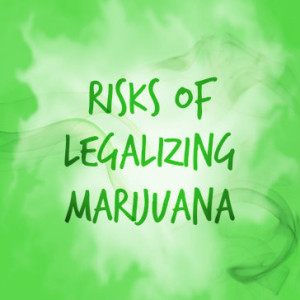 One of the primary cons of marijuana legalization is the mixed message it sends to users and potential users, especially teens. Proponents of marijuana legalization speak of health benefits or cite it as a treatment for chronic pain or for the relief of symptoms associated with chronic illnesses such as cancer, multiple sclerosis and even AIDS. This language takes marijuana out of the realm of “illicit drug” and into the category of “alternative medicine.” If not seen as a substance that promotes health, it will, at least be seen as harmless. Unfortunately marijuana is not harmless, nor is it akin to medicine.
One of the primary cons of marijuana legalization is the mixed message it sends to users and potential users, especially teens. Proponents of marijuana legalization speak of health benefits or cite it as a treatment for chronic pain or for the relief of symptoms associated with chronic illnesses such as cancer, multiple sclerosis and even AIDS. This language takes marijuana out of the realm of “illicit drug” and into the category of “alternative medicine.” If not seen as a substance that promotes health, it will, at least be seen as harmless. Unfortunately marijuana is not harmless, nor is it akin to medicine.
Though marijuana has been legalized in some states for medical use, that does not mean it has been approved by the FDA as a treatment for any sort of medical condition. Nor should it be linked with other non-FDA approved treatments and therapies such as herbal remedies, alternative medicines or vitamins. Regardless of its legal status, marijuana is a drug and it carries with it health risks and consequences. And voting to legalize it actually undermines the authority of the FDA, putting the task of approving drugs and medical treatments into the hands of voters and legislators.
High Risk For Dependence And Health Consequences
Questionable health benefits notwithstanding, people who use marijuana for medical or recreational purposes are building a relationship with a substance that carries a high risk of dependence and addiction. Using marijuana “medically” does not mean that one is exempt from short-term memory loss, that cognitive function is not impaired, that lung tissue is not damaged or that it may not become a gateway drug to more potent and dangerous substances.
Risks Outweigh Suggested “Benefits”
Those who oppose legalization continue to argue that any suggested benefits of marijuana use are far overshadowed by the risks and dangers. Anti-legalization doctors and scientists demonstrate that there are no measurable health benefits of marijuana use. The scientific research does not support the claims and adequate, reliable research has not been conducted. The conditions for which medical marijuana may be useful are broad and vague. Opponents also note that the legal, non-marijuana therapies currently on the market are more effective in treating the conditions for which pot is suggested
The cons of legalizing marijuana are many. Though marijuana may have some suggested (though not scientifically proven) health benefits, it is important to remember that those benefits come with risk as well. Legalization of marijuana not only sends the wrong message to young people about what is medicine and what isn’t, what is healthy and acceptable for use and what isn’t, it also may open the door to increased legalization of pot for recreational use. This in turn may lead to the demand for more hardcore illicit drugs, not to mention an increase in the national addiction epidemic.
Learn More About Drug Rehab Addiction News And Laws
Stimulants are drugs that increase your metabolism, heart rate and blood pressure. They make you feel alert, keep you awake, can help you focus, and may cause you to lose your appetite and lose weight. Among drugs that are abused, the amphetamine class of stimulants is both popular and dangerous. In terms of methamphetamine vs. amphetamine, it can be difficult to distinguish between the two, yet there are important differences.
Amphetamine and methamphetamine are prescriptions that help many people, but which also have a high potential for abuse. Another member of this class of drugs, methcathinone, has no clinical use, but has been discovered by abusers and is growing in popularity. It is important to learn about these common, but dangerous stimulants, especially if you are the parent of teens.
Amphetamine vs. Methamphetamine
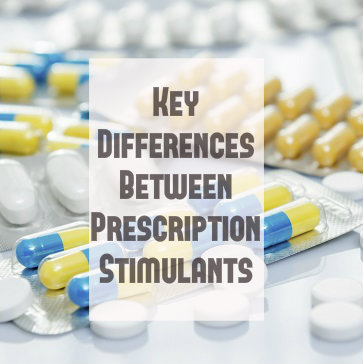 Amphetamine is a stimulant drug from which all other members of its group are derived. It is the base drug. As a stimulant, amphetamine acts on the central nervous system. It is most often prescribed for children with ADHD. It helps them to focus. Amphetamine is commonly abused by high school and college students as a study aid. It produces wakefulness and focus, which makes it a desirable tool for studying long hours. The risks, however, are great. Amphetamine causes side effects like nausea, headaches, shaking, insomnia, nervousness and more. It is also highly addictive.
Amphetamine is a stimulant drug from which all other members of its group are derived. It is the base drug. As a stimulant, amphetamine acts on the central nervous system. It is most often prescribed for children with ADHD. It helps them to focus. Amphetamine is commonly abused by high school and college students as a study aid. It produces wakefulness and focus, which makes it a desirable tool for studying long hours. The risks, however, are great. Amphetamine causes side effects like nausea, headaches, shaking, insomnia, nervousness and more. It is also highly addictive.
Methamphetamine is similar to amphetamine. Like amphetamine, it is a stimulant that increases wakefulness and alertness. It is less often prescribed for ADHD and in rare cases can be used to treat obese patients. Methamphetamine is prescribed less often than amphetamine because it is more harmful. It can cause lasting damage in the brain with long-term use and is extremely addictive. Because prescriptions for methamphetamine are scarcer, users often get it from amateur meth labs. Abusers of meth use it to get a high rather than to study.
Methcathinone vs. Methamphetamine
Another member of the amphetamine stimulant class of drugs, methcathinone, is similar to methamphetamine. Unlike meth, however, it has no clinical use. It is a Schedule I drug in the U.S. because it is dangerous and addictive. It is not prescribed to treat any medical conditions. Methcathinone is chemically very similar to methamphetamine and is also a stimulant.
Like both amphetamine and methamphetamine, methcathinone suppresses the appetite, increases wakefulness, heart rate and energy, and produces alertness in the user. The sense of euphoria that also comes with taking the drug is the main reason people abuse it. The feeling is described as being less intense than that imparted by methamphetamine. As with methamphetamine, methcathinone causes long-term damage and is highly addictive.
All members of the stimulant class of drugs have potential for abuse, but amphetamine, methamphetamine, and increasingly methcathinone are among the most common. Teens and young adults are often drawn to these drugs for either the high, the potential for a study aid, or both. Adults and parents should be aware of these drugs and the harm that they can cause.
If You Or Someone You Love Is Struggling With Stimulant Abuse, Call Us Now – Help Is Available 24/7
The device called an e-cigarette is a big story in the news these days. They appeared on the market several years ago as a way to help smokers quit and now they are reaping in billions of dollars in sales every year. Controversies surround these devices; not least of which is the harm they may pose to children and teens. So what is an e-cigarette and what do you need to know about them to protect your children? Get the facts and talk to your kids about e-cigarettes before they experiment on their own.
What Are E-Cigarettes?
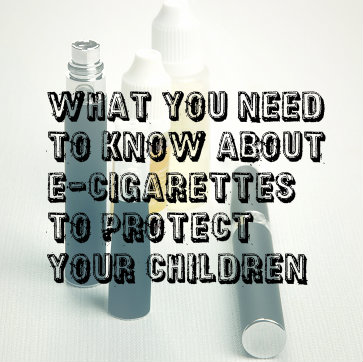 An e-cigarette is a device that uses a battery to warm a small vial of nicotine dissolved in liquid. The user inhales the vapor to get the nicotine and exhales water vapor. The idea is that a smoker can use an e-cigarette to get a nicotine fix without inhaling the thousands of harmful compounds that are in cigarette smoke and which cause health problems. Studies as to whether they really help people quit are ongoing. There is no definitive answer yet, but what seems to be clear is that e-cigarettes are useful for some smokers and not for others.
An e-cigarette is a device that uses a battery to warm a small vial of nicotine dissolved in liquid. The user inhales the vapor to get the nicotine and exhales water vapor. The idea is that a smoker can use an e-cigarette to get a nicotine fix without inhaling the thousands of harmful compounds that are in cigarette smoke and which cause health problems. Studies as to whether they really help people quit are ongoing. There is no definitive answer yet, but what seems to be clear is that e-cigarettes are useful for some smokers and not for others.
Are E-Cigarettes Harmful To Kids?
Although they don’t produce smoke, e-cigarettes are still devices that deliver a hit of a one of the most addictive substances, nicotine. Because e-cigarettes are marketed as a healthier alternative to smoking, most young people inaccurately assume there are no risks in using one. Nicotine is highly addictive and any child or teen using an e-cigarette is at significant risk of becoming addicted to it. There is also the risk of poisoning. Nicotine is poisonous in high doses and the liquid in the e-cigarette can be toxic.
Nicotine is a drug that affects the nervous system, the brain, and the heart. Someone abusing nicotine will experience an elevation in blood pressure and heart rate. High doses can cause a dangerous heart arrhythmia. In rare cases, and with large doses, this arrhythmia can be fatal. With their smaller bodies, kids are more vulnerable to these risks than adults are.
How Do I Protect My Kids from E-Cigarettes?
When it comes to any kind of drug, knowledge is power. Once you understand the risks and dangers associated with e-cigarettes, you can share them with your kids. You should have regular conversations with your kids about substance abuse, alcohol, peer pressure, smoking and other issues they face as children and as teens. Bring e-cigarettes into the conversation and make sure they understand that these devices are not safe.
Also make sure your kids understand how e-cigarette makers are specifically trying to target them to get them hooked on nicotine. The manufacturers make these devices with an array of flavors that mimic fruit, candy, cookies, and specific products that children love, even Girl Scout cookies. The companies making e-cigarettes have no qualms about targeting kids and teens in this way and they even sponsor events, like rock concerts, that attract young people.
Despite the risks, teens and even children are trying e-cigarettes. According to surveys, one in ten high school students has already tried e-cigarettes. As a parent, it is your job to stay on top of the changing landscape of harms and risks posed to your children and to protect them. By learning about e-cigarettes you can help your kids understand all the reasons they should avoid these devices. The risks of nicotine use are too great and we still don’t understand the full danger of e-cigarettes. Keep yourself and your children knowledgeable and you’ll empower them to make better choices.
Learn More About How E-Cigarettes Are Secretly Being Used To Hide Drug Use
The problem of prescription drug abuse is one that touches almost everyone in some way. Millions of Americans have abused prescription drugs and are at risk of becoming addicted or even of having a fatal overdose. Teens are particularly vulnerable and don’t always understand the dangers associated with prescriptions. Teens today are abusing prescription drugs in greater numbers than any other age group. Learn how to keep your teen safe in the face of this epidemic.
Which Drugs Are Teens Abusing?
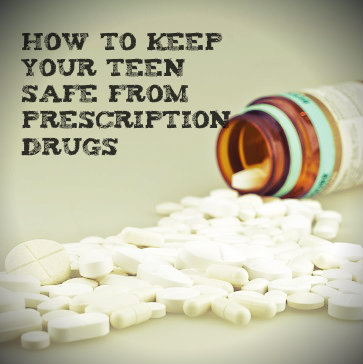 Teens are abusing prescription painkillers in record numbers. These are narcotic controlled substances and are highly addictive and easy to overdose on. In the last 20 years, the number of people between the ages of 12 and 17 that abuse these painkillers has increased ten-fold. No teen demographic is excluded from these statistics. Teens from all socioeconomic backgrounds, of all races, and of both genders are abusing painkillers.
Teens are abusing prescription painkillers in record numbers. These are narcotic controlled substances and are highly addictive and easy to overdose on. In the last 20 years, the number of people between the ages of 12 and 17 that abuse these painkillers has increased ten-fold. No teen demographic is excluded from these statistics. Teens from all socioeconomic backgrounds, of all races, and of both genders are abusing painkillers.
The other category of prescription drugs being abused by teens is stimulants. Stimulant medications are typically amphetamines prescribed for children with attention deficit hyperactivity disorder, or ADHD. Teens abuse them mostly as study aids. They have the effect of keeping the user awake and allowing for more focus and concentration. In a competitive academic world, many teens turn to these drugs to get better grades. The risks are high, of course, and include addiction, long-term health consequences and overdose.
How Can I Keep My Teen Safe From Prescription Drugs?
One of the scariest aspects of the trend in teen prescription drug abuse is that parents are largely unaware of the problem. As many as one in ten teens abuses stimulants, yet most parents have no idea what’s going on. How can you keep your teen safe when you don’t know there is a problem? The first thing you can do to protect your teen is to get to know his activities. By developing an open, communicative and trusting relationship with your teen you will be better tuned in to what is going on with him. You will be more likely to notice if something seems off, which could be attributed to drug abuse.
As you educate yourself about prescription drug abuse, also educate your teen. Knowledge is power and many teens abuse these drugs thinking that they are mostly harmless. If doctors prescribe them, sometimes even to kids, they must be safe, right? This attitude is dangerous. Learn about the risks of taking these medications without a doctor’s supervision and share what you learn with your teen.
It is also important that you minimize your teen’s access to drugs. There are many reasons teens abuse drugs, but one reason they may turn to these prescriptions more than most other substances is access. Most people abusing prescription drugs get them from a friend or family member. If anyone in your family has been prescribed a painkiller or stimulant, make sure it is kept in a secure location that your teen cannot access. Teens also get prescriptions from illegal online pharmacies that don’t check for prescriptions. Control your teen’s access to the Internet and check his history from time to time.
The problem of prescription drug abuse is a serious and ongoing one, for both adults and teens. To keep your teen safe from the epidemic of prescription abuse you need to be aware and knowledgeable. Talk to your teen and make sure he knows that he can come to you with problems. Discuss the risks of abusing drugs and restrict his access to them; take these important steps to reduce the chances that he will experiment with prescriptions.
If You Suspect Your Teen Is Abusing Prescription Drugs – Don’t Hesitate – Call Us Now!
Attention deficit hyperactivity disorder, or ADHD, is a common behavioral disorder in childhood. If you have a child with ADHD you are far from alone. Many kids use medication as part of the treatment for ADHD and there have been some concerns that these drugs could lead to later problems of substance abuse. Whether ADHD medications cause an increased risk for later addiction is not fully known, but what is certain is that you as a parent have the biggest influence over your child’s choices.
ADHD Treatment And Medications
 Experts agree that the best way to treat the symptoms of ADHD, which include hyperactivity, inability to focus or concentrate, and impulsive behaviors, is with both therapy and medication. Using drugs alone is not the best solution to helping kids with ADHD. When they learn to modify their behaviors and are given medications to help them better focus, they have the best odds of success.
Experts agree that the best way to treat the symptoms of ADHD, which include hyperactivity, inability to focus or concentrate, and impulsive behaviors, is with both therapy and medication. Using drugs alone is not the best solution to helping kids with ADHD. When they learn to modify their behaviors and are given medications to help them better focus, they have the best odds of success.
The medications that are used to treat ADHD are stimulants. Although it may seem counterintuitive, these stimulants actually help children to focus, to concentrate on one thing at a time, and to be able to control impulses. There are different kinds of stimulants used for ADHD, including Ritalin, Concerta and Adderall, among others. Children needing one of these drugs may have to try a few before finding the right one and the right dose that maximizes benefits while minimizing side effects.
Will ADHD Medications Cause Future Drug Abuse?
There has been controversy surrounding the use of stimulant medications to treat ADHD in children, but nothing has yet outweighed the benefits that these drugs have given kids. Some claim that kids are overmedicated and the drugs can cause lasting harm, although there is no evidence for this. One very real problem is abuse of ADHD prescriptions. It is not uncommon for teens and college students to use these drugs (which are mostly amphetamines) in large quantities to stay up late for studying and writing papers. This abuse can definitely lead to addiction.
Another controversy has been the fear that even the use of ADHD medications by kids following a doctor’s instructions could lead to future addiction. A few studies have made this connection, but have failed to show whether it was conclusively the drug or other factors that led to later drug abuse. A more recent review of these kinds of studies failed to find real and substantial evidence that ADHD drugs cause a child to abuse drugs or become addicted to drugs later in life.
The review included 15 separate studies and more than 2,000 participants. The result was that being medically treated for ADHD has no connection to future drug abuse. It neither increases nor decreases the risk of drug addiction. An interesting finding is that simply having ADHD can increase a child’s risk of future drug abuse; it seems likely that treating the disorder could therefore reduce the risk.
Good News For Parents Of Children With ADHD
The good news for parents of children with ADHD is that stimulant medications are largely helpful. As long as there are no serious or disruptive side effects the drugs can help kids focus in school, get along with peers better, and be more successful. The risk of developing substance abuse problems later in life is not related to medication.
In fact, what all experts know is that parents’ influence and behaviors is the biggest determining factor in whether a child abuses drugs. Talk to your children about drug abuse and develop a healthy relationship and you can steer them in the right direction.
Read More About Mental Health, Teens And Addiction


